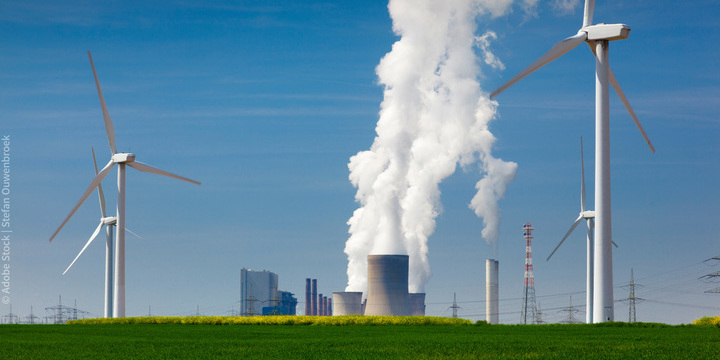


Mercantilist Policies for Climate Action?
|
Expert Opinion
The fight against climate change requires a combination of global efforts, including investments in renewable energy systems and other climate-neutral technologies. Given positive externalities and incomplete carbon pricing, there is a compelling argument for governments to support the production of such clean energy technologies. However, the location of production of these technologies should at best be determined by the comparative advantages of individual economies and is, at least from a global perspective, of secondary importance for global climate action.
Nevertheless, this is exactly what the EU Commission is aiming at with its draft “Net Zero Industry Act” presented in March 2023. According to this proposal, a large part of the clean energy technologies deployed in the EU should be produced domestically and not imported from abroad. The aim is to achieve a 40 percent EU production quota for eight net-zero technologies by 2030, including photovoltaic systems, offshore wind technologies, batteries, and heat pumps. In other words, the EU Commission is aiming for a maximum import quota of 60 percent for these cleantech products. For certain technologies, the Commission also wants to set concrete minimum production volumes.
Even if these targets in the EU Commission's draft are not to be binding (for the time being), they represent a fundamental change in the EU's foreign trade policy: the use of import quotas as a goal of economic policy is ultimately a mercantilist policy that is in clear contradiction to an open and rule-based world trade order. For purely domestic political reasons, it may be understandable that the technologies and products needed for the transformation to a climate-neutral economy should be primarily produced domestically and that attempts should therefore be made to reduce the sourcing of cleantech products from abroad. However, especially representatives of the European institutions should have internalized that such an approach ultimately leads to a protectionist dead end and is associated with considerable economic costs, especially in the age of global value chains.
Even more problematic is the fact that a mercantilist EU policy for clean energy technologies could also unnecessarily increase costs and slow down European climate protection efforts, thus doing a disservice to global climate action. The fact that a product is important for achieving climate neutrality does not in itself imply that the demand for this product should be met mainly by production capacities within the EU. What matters for climate action in the end is the widespread use of cleantech products in the EU and beyond, regardless of their production origin. Instead of “Europe first,” “Climate first” would have been a much better slogan for the path towards climate neutrality.
Instead of striving for a high degree of self-sufficiency, the EU should instead focus on fostering free global trade in clean energy technologies, for example through a new WTO agreement on environmental goods. In this way, the efficiency gains of the international division of labor could be harnessed for the global transition to climate neutrality and innovation in this area could be stimulated. In this context, it should be welcomed that the competitiveness of European cleantech industries is strengthened through the promotion of research and development and simplified approval procedures as part of the Net Zero Industry Act. However, a subsidy race to outdo other countries’ subsidies in order to protect domestic production would be economically counterproductive and would not contribute to global climate protection efforts.
Despite the mercantilist approach, the EU Commission makes an important point when it warns against excessive world market concentration in the production of specific clean energy technologies. Last year, for example, EU member states sourced roughly 90 percent of imported photovoltaic systems from China alone. China also holds an extremely strong market position in batteries or battery components, for example. However, the problem of dominant supplier countries, their effect on world markets, and the resulting potential for economic coercion is not limited to clean energy technologies, but rather represents a fundamental challenge for the EU in the age of geo-economics. Instead of nitpicking specific cleantech products, a forward-looking trade policy should include a coherent external economic strategy that addresses such dependencies at the European level within the framework of transparent and uniform criteria. The core component of such a strategy should not be a broad-based import substitution, which would entail significant economic costs and regional concentration of supply chain risks. Instead, the key to more resilient supply chains and the reduction of critical dependencies lies in diversifying supply chains, both domestically and internationally. An ambitious and open EU trade policy is crucial in achieving these goals.
*This guest contribution was first published in German at the Frankfurter Allgemeine Zeitung, April 14, 2023.